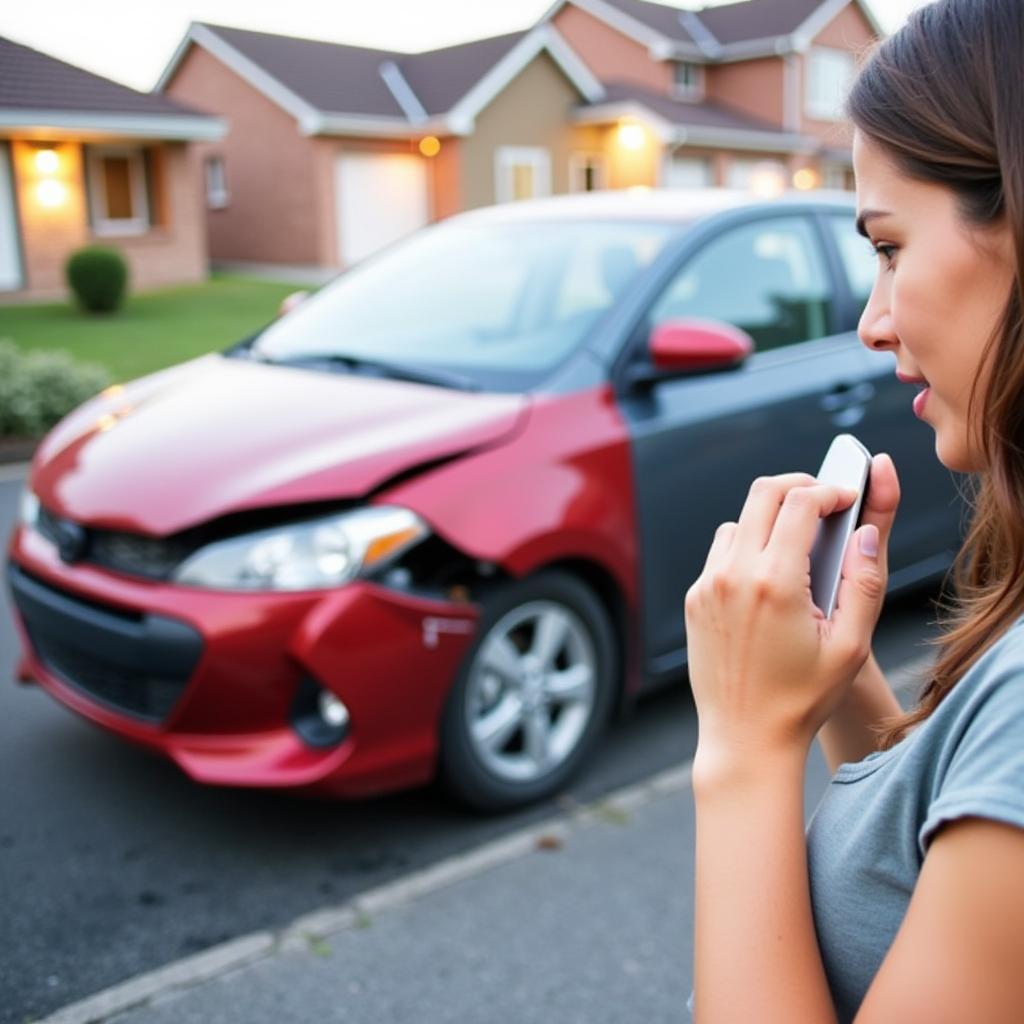Getting into a car accident is stressful enough without having to worry about what information you need to collect. But gathering the right details at the scene of the accident, specifically if someone hits your car, is crucial for insurance claims and potential legal proceedings. This article will guide you on the essential information to gather to protect yourself in such situations.
Essential Information to Collect at the Accident Scene
Being in an accident can be disorienting. However, it’s important to remember to stay calm and focus on gathering the following information:
1. Contact and Insurance Information
The most crucial information is the other driver’s details:
- Full Name and Contact Information: Obtain their full legal name, phone number, and address.
- Driver’s License Information: Note down their driver’s license number, issue date, and expiry date.
- Insurance Details: Get their insurance company name, policy number, and contact information.
Pro Tip: It’s a good practice to take photos of their driver’s license and insurance card with your phone to ensure accuracy.
2. Vehicle Information
Record the following details about the other vehicle involved:
- Make, Model, and Year: Note the type, model, and year of manufacture of the car.
- License Plate Number: Write down the complete license plate number and the state of issuance.
- Vehicle Identification Number (VIN): If possible, try to obtain the VIN (usually found on the dashboard or driver’s side door jamb). This can be helpful for insurance purposes.
3. Accident Scene Details
Documenting the accident scene thoroughly can be valuable for insurance claims. Here’s what to focus on:
- Date, Time, and Location: Record the exact date and time of the accident and the precise location.
- Photos and Videos: Take detailed photos and videos of the damage to all vehicles involved, from different angles. Capture images of the surrounding area, including traffic signals, road signs, skid marks, and any property damage.
- Witness Information: If there are any witnesses, try to get their names and contact information. They can provide valuable testimonies later.
4. Police Report
Even if the accident seems minor, it’s crucial to call the police and file a police report. The police report provides an official record of the accident and can be very useful for insurance claims. Be sure to get the police report number.
What to Do After Gathering Information
After gathering the necessary information:
- Contact your insurance company: Notify your insurance company about the accident as soon as possible.
- Don’t admit fault: Avoid discussing fault or accepting blame at the scene, even if you think you might be at fault. Let the insurance companies determine liability.
- Seek medical attention: Even if you don’t feel injured immediately, get checked by a medical professional. Some injuries may not be apparent right away.
 Contacting Insurance After a Car Accident
Contacting Insurance After a Car Accident
Protecting Yourself: Why Details Matter
Collecting detailed information after a car accident is crucial for:
- Insurance Claims: Insurance companies rely on accurate information to determine fault and process claims. Having detailed records helps expedite your claim.
- Legal Protection: In case of disputes or legal actions, the information collected serves as valuable evidence to support your case.
- Accurate Fault Determination: Having comprehensive details helps ensure the accurate determination of fault and prevents discrepancies in accounts of the incident.
Remember, staying calm, gathering all necessary information, and acting swiftly after someone hits your car can significantly impact the outcome of your insurance claim and protect your legal rights.

Leave a Reply